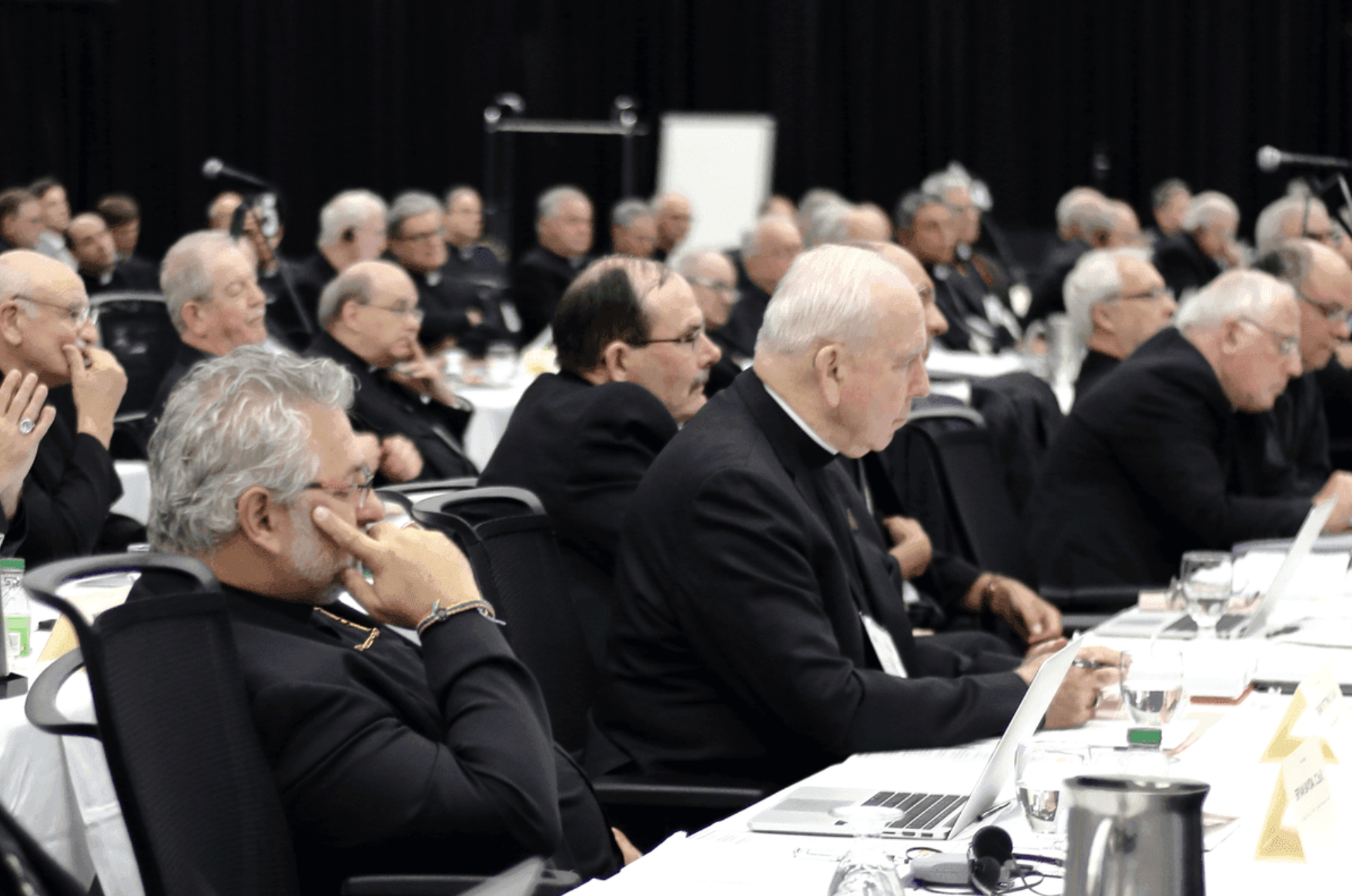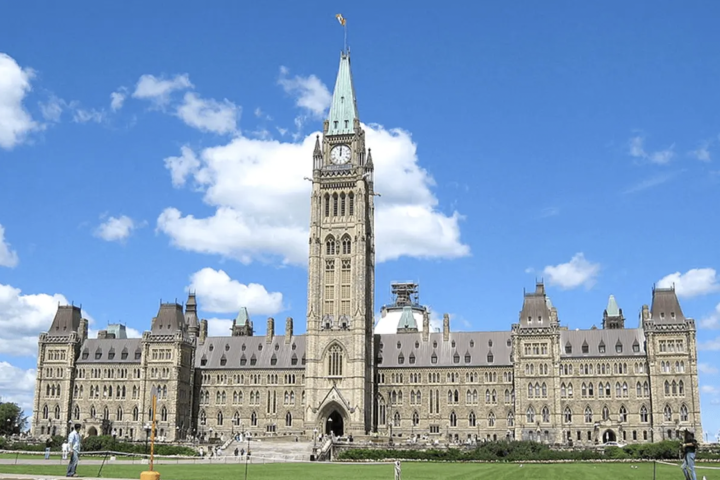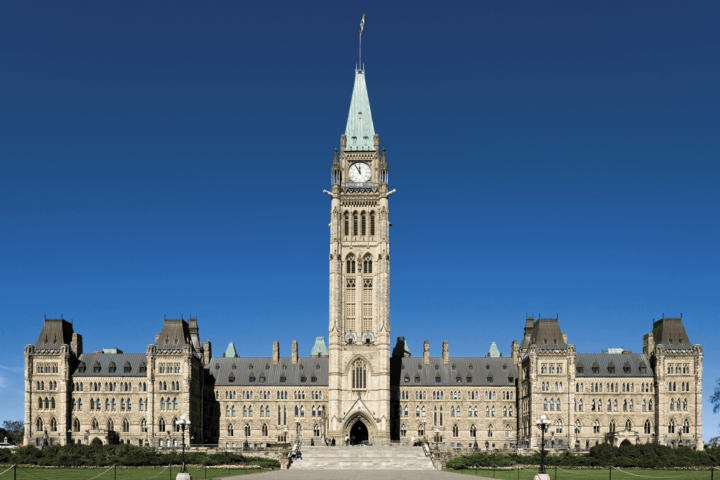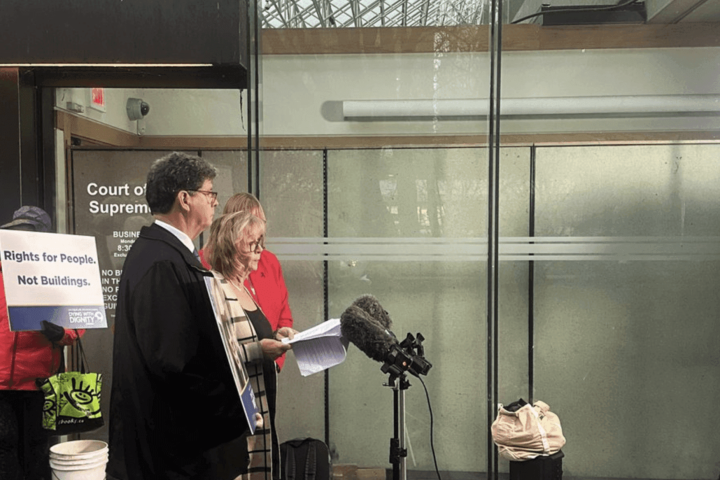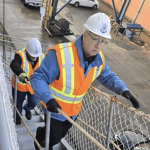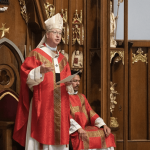TORONTO (CCN) — The Canadian Conference of Catholic Bishops (CCCB) leadership will change significantly by the end of its 2025 plenary assembly in Montreal.
It will be one of the items on the agenda for the Canadian bishops as they meet for the annual plenary beginning Sept. 22.
Every two years, bishops are called upon to vote in a new president, vice president and co-treasurer for the CCCB Executive Committee’s English Sector, and a co-treasurer for the French Sector. Regional representatives from the Atlantic, Quebec, Ontario and Western Episcopal Assemblies, and sectoral representatives, will be appointed to the CCCB Permanent Council.
Elections will be conducted with secret voting and the results will be announced at noon on the final day of the assembly, Sept. 26.
Presently, the CCCB President is Calgary Bishop William McGrattan and the Vice President is Sainte-Anne-de-la-Pocatière Bishop Pierre Goudreault. The co-treasurers are St. Catharines’ Bishop Gerard Bergie and Saint-Hyacinthe Bishop Christian Rodembourg.
Meanwhile, artificial intelligence, synodality and interfaith relations are among the key matters that will be discussed during the week.
Fr. Philip Larrey, a philosophy and digital age ethics scholar, will be the keynote speaker for this gathering convening 80 CCCB members from the Latin and Eastern Churches. A professor at Boston College since 2023, Larrey formerly taught and served as Dean of Philosophy at the Pontifical Lateran University — also known as the Laternaum — in Rome for over 20 years.
Since 2018, Larrey has chaired the Humanity 2.0 foundation, a medium for facilitating collaborative human flourishing ventures between the traditionally separated public, private and faith-based sectors of society. He has also authored many books, including Artificial Humanity: an essay on the philosophy of artificial intelligence and Connected World: From Automated Work to Virtual Wars: The Future, By Those Who Are Shaping It.
The CCCB acknowledged in a press release that “the Church’s engagement with AI as a moral and social concern has grown in recent years” and that Pope Leo XIV has “highlighted the Church’s role in guiding ethical reflection on AI” on multiple occasions since beginning his papacy in May.
Valleyfield Bishop Alain Faubert, elected to the Ordinary Council of the General Secretariat of the Synod last October, will update the CCCB members on the new Implementation of the Synod on Synodality Ad Hoc Committee.
Faubert will specifically present on how the CCCB can help diocesan shepherds practically apply the Final Document of the XVI Ordinary General Assembly of the Synod of Bishops at a local level. Bishops will share their reactions to the missive and outline expectations during workshops and a plenary session.
The assembly will also see Regina Archbishop Donald Bolen present a National Ecumenical Strategy (NES) for possible approval. This plan has been developed over the past two years by the Episcopal Commission for Christian Unity, Religious Relations with the Jews and Interfaith Dialogues. Ecumenical guests — yet to be announced — will have an opportunity during the assembly to provide feedback. A revised and finalized document will then be submitted to CCCB for approval.
Other items on the agenda include the introduction of a new action plan from the Standing Committee for Responsible Ministry and the Protection of Minors and Vulnerable Persons, updates on Indigenous reconciliation efforts and a pastoral reflection about the 1,700th anniversary of the Council of Nicaea.
Fr. Gregory Hrynkiw, a Byzantine-Catholic monk from the Ukrainian Eparchy of Saskatoon, will lead the session honouring the legacy of the Nicaean Council. This reflection is viewed by the CCCB as an opportunity to “reaffirm the unity of faith articulated by the Council of Fathers and to recommit fostering Christian unity today.”


